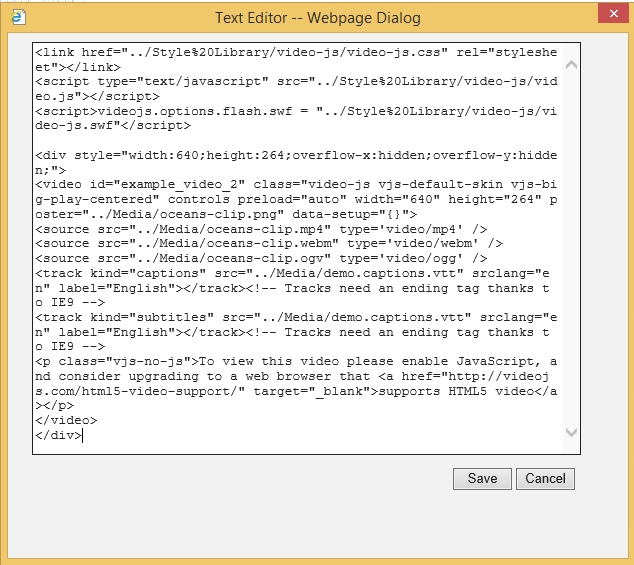

See The Fullscreen API Spec for more details. At some point, it will be augmented with element and handler for more functionality. Var player = videojs ( 'my-video', įullscreen.options can be set to pass in specific fullscreen options.

a string value of 'any': will call play() on loadstart and if the promise is rejected it will mute the video element then call play().a string value of 'play': will call play() on loadstart, similar to browsers autoplay.a string value of 'muted': will mute the video element and then manually call play() on loadstart.a boolean value of true: the same as having attribute on the video element, will use browsers autoplay.a boolean value of false: the same as having no attribute on the video element, won't autoplay.Instead of using the autoplay attribute you should pass an autoplay option to the videojs function. NOTE3: You cannot pass a string value in the attribute, you must pass it in the videojs options NOTE2: If there is an attribute on the media element the option will be ignored. NOTE: At this point, the autoplay attribute and option are NOT a guarantee that your video will autoplay. Typically, defaults are not listed as this is left to browser vendors. Standard Element OptionsĮach of these options is also available as a standard element attribute so, they can be defined in all three manners outlined in the setup guide. To learn about passing options to Video.js, see the setup guide. Note: This document is only a reference for available options. More info on autoplay support and changes:.


 0 kommentar(er)
0 kommentar(er)
